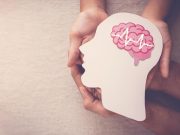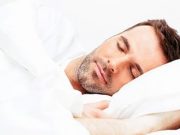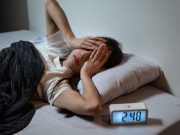Tag: Insomnia
Transcutaneous Auricular Vagus Nerve Stimulation Effective for Insomnia
taVNS significantly reduces insomnia severity and is associated with sustained benefits over 20 weeks
Usual/Permanent Night Shifts, Poor Sleep Quality Linked to Epilepsy
Higher risk for epilepsy also seen for sleep duration less than seven or more than eight hours per day, frequent insomnia, and daytime sleepiness
Cognitive Behavioral Therapy Program Aids Insomnia in Breast Cancer Survivors
Intervention includes six-week in-home, voice-activated cognitive behavioral therapy program
Behavior Change Intervention Via Mail Cuts Use of Sleep Medications in Older Adults
Older adults with long-term benzodiazepine receptor agonist use and insomnia diagnosis had significant improvements in sleep outcomes
Ultraprocessed Food Intake Tied to Chronic Insomnia
Findings independent of sociodemographics, lifestyle, diet quality, and mental health status
Regular, Long-Term Physical Activity Tied to Better Sleep Outcomes
Physical activity tied to fewer insomnia symptoms and extreme sleep durations, both long and short
Insomnia Found to Be Common Among Nonhospitalized COVID-19 Survivors
Risk for insomnia even higher for those with depression or anxiety
Cognitive Therapy or Trazodone Not Effective for Insomnia in Hemodialysis
No difference seen in effectiveness of six weeks of CBT-I or trazodone compared with placebo for patients undergoing hemodialysis
Genetic Predisposition to Insomnia Linked to Insomnia-Like Problems
Children with polygenic risk score for insomnia have more insomnia-related sleep problems between ages 1.5 and 15 years
Insomnia Prevention Program Beneficial for At-Risk Adolescents
Adolescents at risk can be categorized into three groups, which have differential benefits from prevention program














